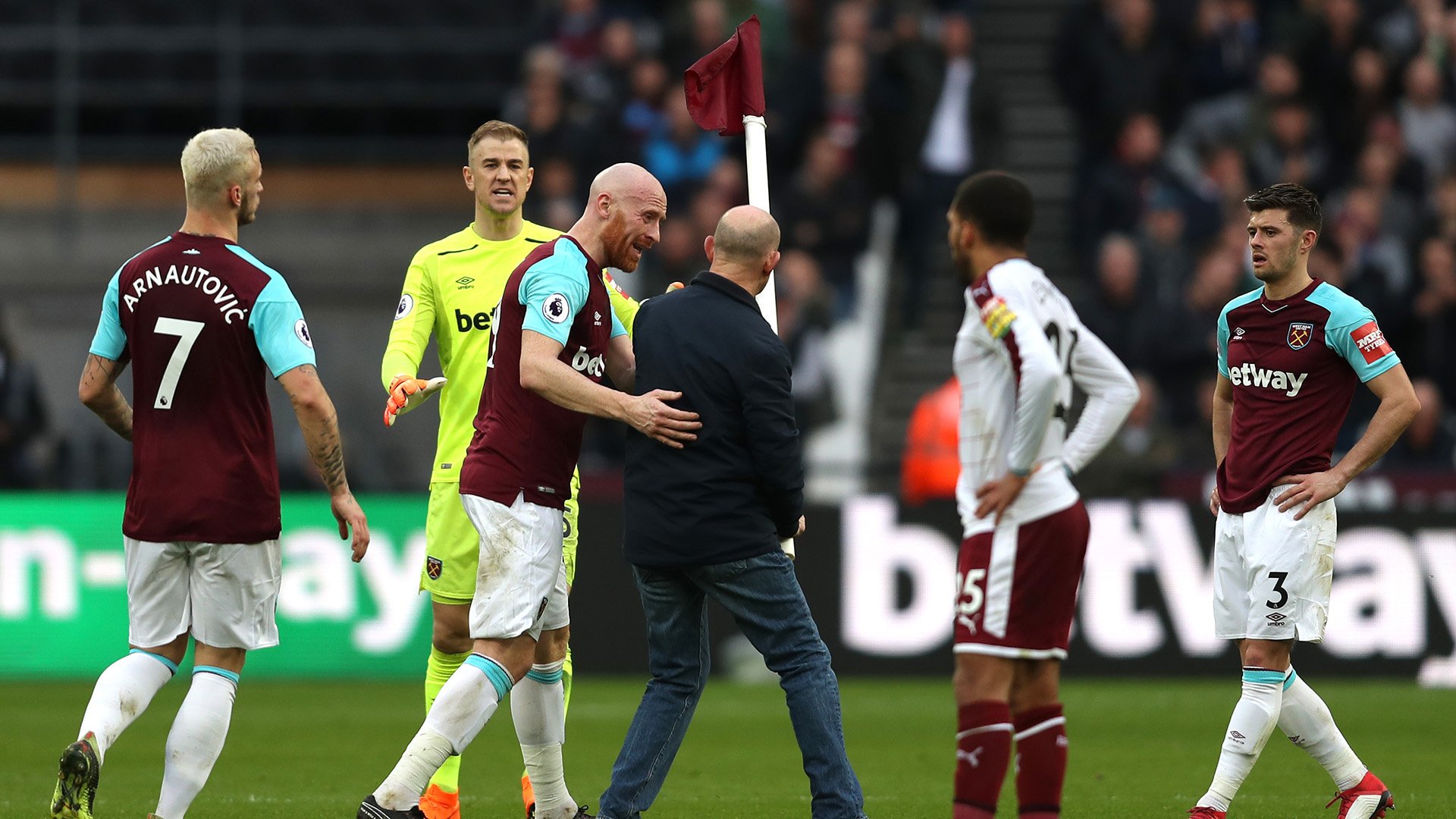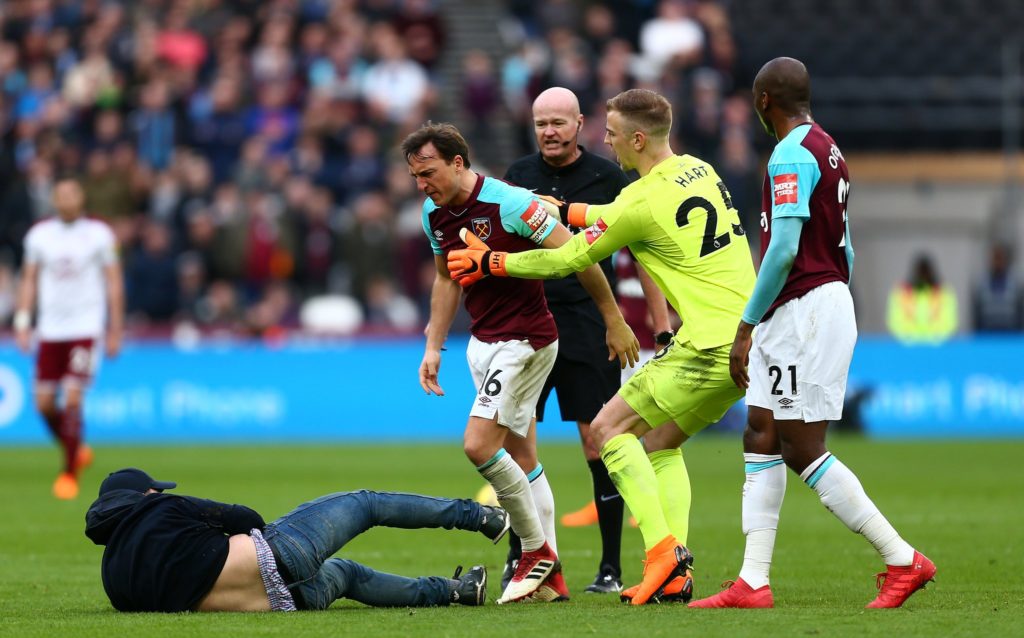
Sports-Specific Criminal Provisions Contravened In The Match Between West Ham United v. Burnley, And The Likely Punishments.
On Saturday, 11th March, 2018, there was an English Premier League division football match between West Ham United FC and Burnley FC which ended three goals to nil in favour of the visiting team. It is in the news that the match was however slightly disrupted by West Ham fans (in protest against the board) after the away team scored its second-half goals.
Below are my thoughts on some of the actions which may be taken against the parties concerned; particularly against the fans vis-à-vis sports-specific criminal laws
a. The Football Association may charge West Ham Football Club for its failure to control its fans; which may result to a fine or other sporting sanctions.
b. After the ongoing investigations by West Ham Football Club, the club may dish out punishments to the fans involved which may include cancellation of their season tickets and/or a stadium ban for some years or even for life.
c. Apart from the sanctions by the football authorities and the football clubs, the state (in maintaining law and order) may also take measures against the football fans involved.
Aside general criminal laws like the UK Public Order Act of 1986, and the Criminal Justice and Public Order Act of 1994 that generally prohibit public disturbance and violence (which yesterday’s incident may already be in breach of), there are also sport-specific criminal provisions which may have also been breached. The alleged incidents which may be in breach of sports-specific criminal laws include:
i. Throwing of missiles
Section 2 of the UK Football Offences Act 1991 prohibits the unlawful throwing of anything at/towards the playing area of the stadium, or towards an area which spectators or other persons are or may be present.
Unconfirmed reports suggest that one of the co-chairmen of West Ham was hit by a coin; the situation being so bad that both of them required police escort out of the Directors’ box. This (in my opinion) would be classified under ‘throwing of missiles” prohibited by the Section 2 of Football Offences Act; if the commission of the act is established.
The next question to ask would be; was the throwing of a coin(s) lawful?
It is hard to think of any defence that the spectators who allegedly threw the coin(s) may have as to its lawfulness. They would have to prove that they had lawful authority to do so, or that they have a legal excuse.
ii. Invasion of the football pitch
In like manner, Section 4 of the same Act makes it an offence for a person to unlawfully go to the playing area, or any area adjacent to the playing area to which spectators are not generally allowed to go.

A West Ham fan who assaulted Mark Noble, being reprimanded.
It was also reported that in furtherance of the protests, some of the spectators got unto the football pitch, distorted some parts of it, and even attempted to assault some of the football players.
Similar to (i) above, it will be difficult if not almost impossible for any of the alleged perpetrators to prove the lawful authority or lawful excuse for the act allegedly done by them.
What could be the lawful excuse for the act of physically confronting Mark Noble (West Ham’s Captain), or removing the corner flag and placing at the middle of the pitch?
Possible punishment.
Flowing from the above, if the fans who got onto the playing area and/or threw objects are found guilty of the above-stated offences by a court of competent jurisdiction in the UK, they may be punished (in line with sections 14E(3) of the Football Disorder Act 2000) with a domestic and international football banning order.
Such banning orders range between 3 to 10 years, depending on the magnitude of the circumstances. They would have to observe such banning orders as it is a criminal offence in itself where the person fails to observe such an order. To ensure compliance, their traveling passports may be confiscated, and the persons may also be made to report at a police station whenever the England team or English teams play abroad.
This, in my opinion, should be applied in this case if the perpetrators are found guilty. It would be more a effective measure than a ‘mere’ West Ham club ban which cannot restrain the Suspects from attending other designated matches and prevent possible further crowd disturbances/violence by them.
Such domestic & international banning orders will further reduce the rate of crowd violence amongst English fans, and save England from a repetition of the wide-spread violent clashes which occurred at the 2014 FIFA World Cup in Brazil.
Meanwhile, i think it is hightime Nigeria enacted sports-specific criminal laws like those above, so as to reduce the high rate of violence in the Nigerian local leagues.
Written by
‘Tosin Akinyemi,Esq.



